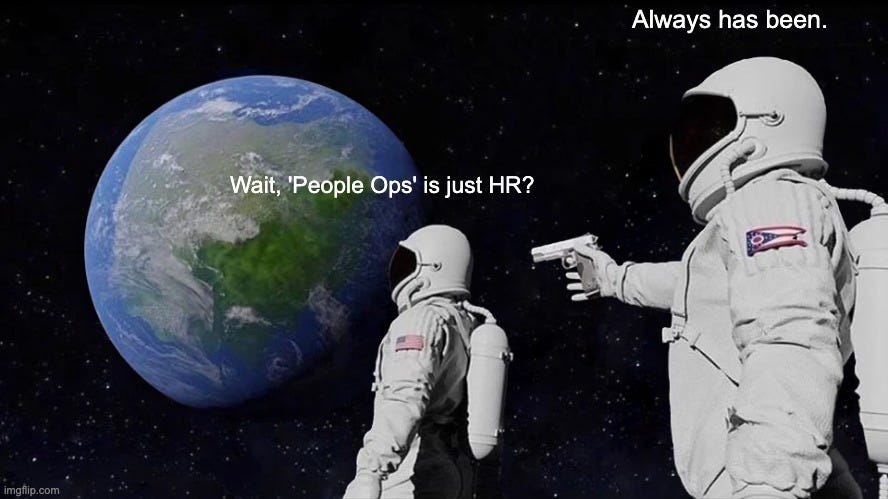Surplus Value Explained: Why You Always Deserve a Raise
Featuring Jesse Pinkman and Vincent van Gogh
Welcome! I’m happy to announce the new JoeWrote referral program. By referring friends to JoeWrote, you’ll get free premium access while helping me reach new readers. Plus, your friends will think you’re really cool for introducing them to an up-and-coming publication. It’s a win-win-win.
Click the button below to get started.

In the video below, Jesse Pinkman perfectly (albeit crassly) explains Karl Marx’s Theory of Surplus Value.
What Pinkman is complaining about is the beating heart of Socialism, and it’s why you — yes, you — deserve a raise. If you work for a privately-owned company, that company only exists because the owner seizes the difference between what your work is worth (revenue) and what you are paid (wages). This is true for every private business, from small sole proprietorships to the makeup of the S&P 500. Whether your employer has one owner or several thousand, as you and your coworkers are the ones creating the company’s value, you have the right to fight for more of it.
Allow me to explain.
Joe’s Shoe Supply Co.
Imagine a hypothetical company called “Joe’s Shoe Supply Co.” Joe, the owner of this company, owns the factory and the tools used to make shoes. To create, market, and sell these shoes, Joe hires 100 workers. 50 of them are shoemakers, 30 work in marketing and sales, and the remaining 20 have assorted jobs such as secretaries, custodians, office managers, and Human Resources. (The greatest trick the devil ever pulled was changing “Human Resources” to “People Ops.”)
In 2022, Joe’s Shoe Supply Co. made one million dollars in sales. To make this million dollars, the company spent $750,000 on wages (salaries and benefits paid to the workers), the cost of materials to make the shoes (leather, laces, etc.), advertising, taxes, and other miscellaneous operating expenses.
Simple math tells us Joe’s Shoe Supply Co. created $250,000 of surplus value in 2022.
$1,000,000 — $750,000 = $250,000
Under a Capitalist (private ownership) structure, this $250,000 is Joe’s property. As the owner of both the factory and tools (these are “The Means of Production”) used to create this value, Joe claims this $250,000 as profit, even if he never set foot in the factory where this $250,000 of surplus value was created.
Joe did not have to cobble a single shoe, dial a single sales call, or attend a single meeting. In fact, Joe did not even have to know that the company or factory existed. Perhaps he is Joe Jr., and he inherited the factory from his father Joe Senior. He could literally spend his existence without lifting a finger, and Joe would still get the $250,000 created by the 100 workers.
If this sounds like Joe is stealing from the workers, it’s because he is.
In a Capitalist society, people are the legal owners of value they did not create. By prioritizing ownership of the means of production (factories, tools, computers, intelligence, etc.) at the top of the socio-economic hierarchy, Capitalism devalues human labor below artificial aspects like “who bought the table the shoes are made on.”
There’s no shortage of philosophical thought on why an owner’s right to surplus value is a grave injustice. But I find the simplest argument the most persuasive.
Private profit is self-evidently unfair.
Why should Joe be rewarded for work he did not do? Why should those who do the work, whether it is as simple as pouring coffee or as grueling as mining coal, not receive the full reward created by the sweat of their brow? Why should Jeff Bezos get to claim what was created by Amazon warehouse workers while he’s taking the world’s most annoying vacation?

The Capitalist answer to this question is: “Because Bezos owns Amazon.” This theory rests solely on the idea that things — delivery vans, warehouses, written code, and everything else that comprises Amazon — are more important than the people who use these things to make value. But this theory contradicts how humans see the world.
Take Vincent van Gogh for example.
Starry Night, one of the most recognizable paintings in modernity, was painted by van Gogh in 1889 during his stay at the Saint Paul de Masuole asylum. The paper, easel, brush, and paint were provided to van Gogh by the monks who ran the asylum. Using these materials, van Gogh turned a mere piece of paper into one of the most valuable assets in history. Yet art collectors, historians, and laymen such as myself aren’t praising the monk that owned the means of production(the paper and paint). They praise the worker (Vincent van Gogh) who turned these worthless assets into value.

This subconscious decision to credit the laborer over the owner comes from the universal truth that humans know, deep in their souls, that the credit for creation is deserved by the one who actually made it. It is human nature to recognize that labor is the paramount ingredient of creation, far superior to whoever is holding the factory deed or the receipt for art supplies.
Without workers, Starry Night is just rotting paper, Joe’s Shoe Supply Co. is a dusty factory, and Amazon is a network of abandoned warehouses and defunct websites. (Also, Gus Fring wouldn’t have meth to sell, but I find that less important.) Labor is what turns nothing into something. It is for this reason that it is the moral right for workers to fight for every cent of surplus value.
In your case, it’s the reason you should go tell your boss you want a raise.
If you appreciated this article or learned something new, subscribe to JoeWrote to have future articles delivered straight to your inbox.
You can help JoeWrote grow by sharing on social media.
Cheers! Joe






The argument I always hear is the "risk" argument. It goes like, "Why should the workers get the profits when the company owner takes all the risk?" It's bullshit of course, because workers actually take more risk, arguably.
In 1999, I lost my job. Was I doing my job poorly? Not at all. I lost my job because the company's stock price dropped. This sort of thing happens all the time. If the owner doesn't make the profit they want, they will find a way to take it out of their employees.
(Stream of consciousness nonsense, read at your own risk)
As someone uneducated on theory, I do have some questions. As Amazon is the company listed in the article as an example, and the place at which I work, I’ll use it as the example as well.
It’s to my understanding that when Amazon was starting out, Jeff Bezos did in fact provide labor to produce value.
(Of course he had a tremendous head start coming out of a high position at a hedge fund company and with a investment of $250,000 to $300,000 dollars from his family, the former definitely being stolen funds under surplus value and the later likely including some but my research doesn’t go that far.)
If one works to provide value but eventually rises to a position where they no longer need to, does their return on time invested still count as stolen value?
Actually writing this out, I think I may be answering my own question. That the simple fact is the value he’s receiving now is not a retirement fund as saved from his value or reward for his work, but because he owns the company. So yes, it does fit within the surplus value theory even if he did work at Amazon previously.
But that does bring me to what I originally created the example to ask, how does retirement fit into this theory? Is it just expected that a person has to put aside money for when they cannot work? Should the company they work at have a program to set aside some of the produced value for them? Should the government collect some as taxes to dole out when they reach a certain age? Is there a way to ethically design a retirement system under capitalism?
Personally, my initial thoughts lean towards the government system, similar to the social security of the us (where I live) as a program that collects money from all working citizens to assist those who cannot or should not. But that does feel like it might conflict with the surplus value theory as it has been explained here.